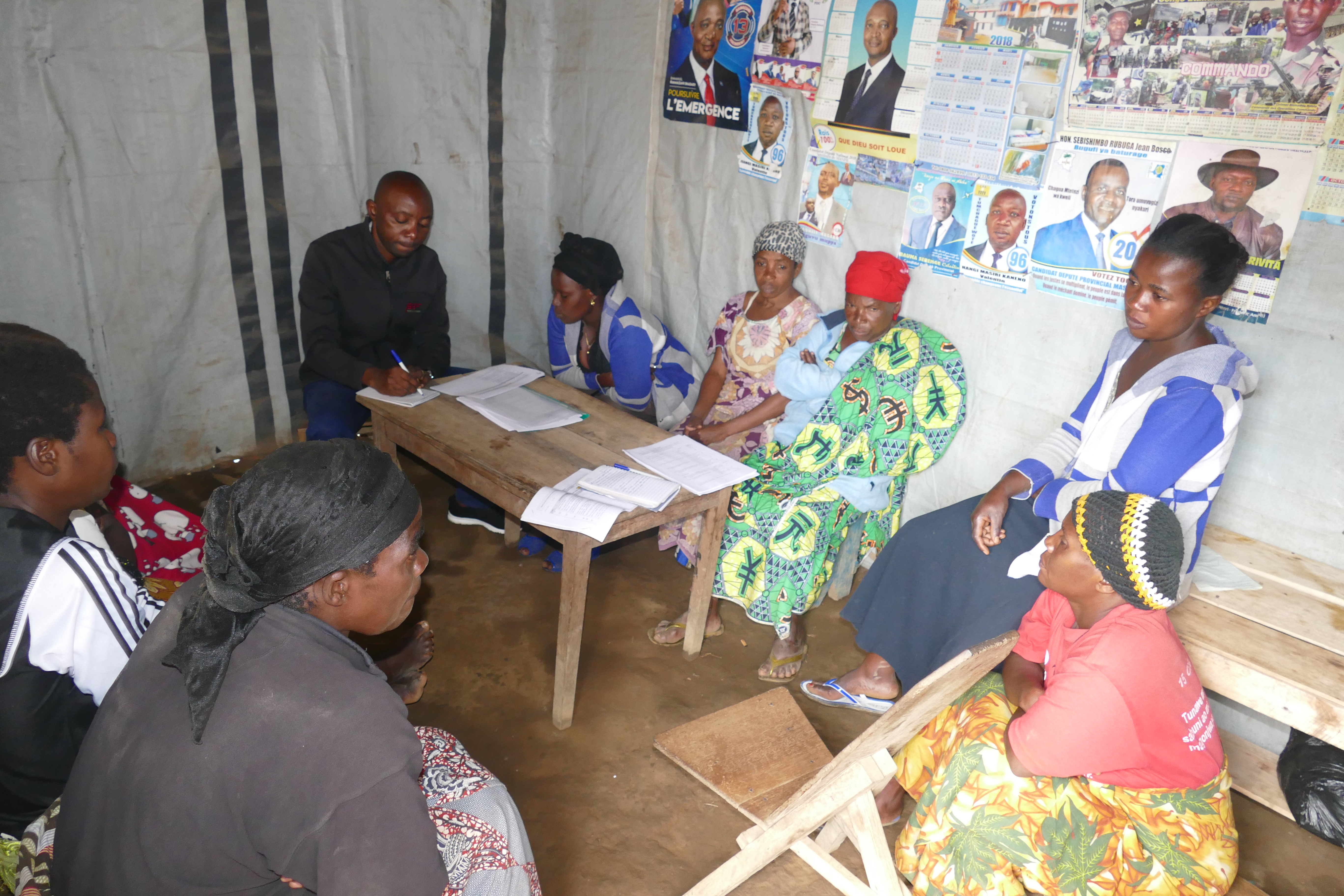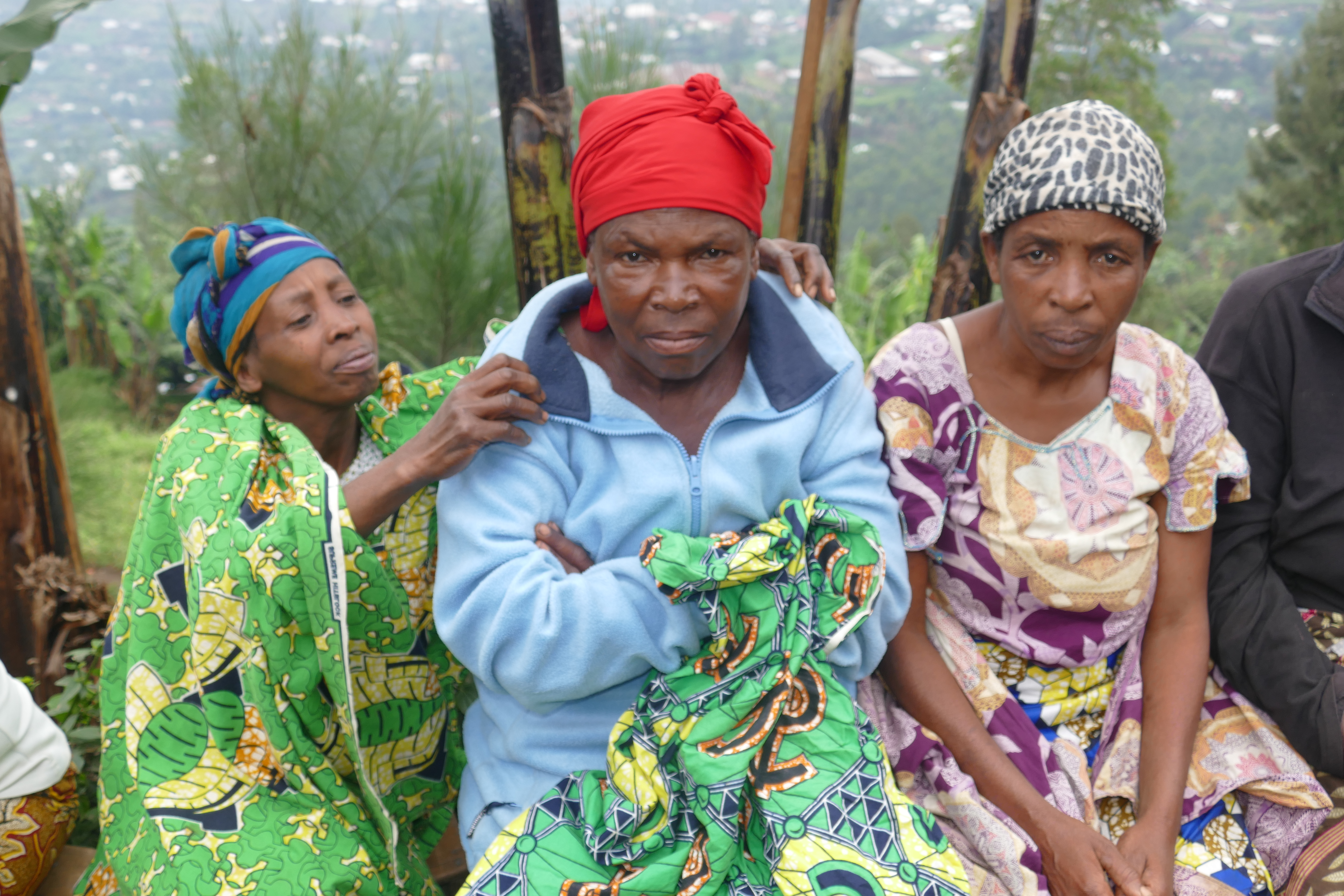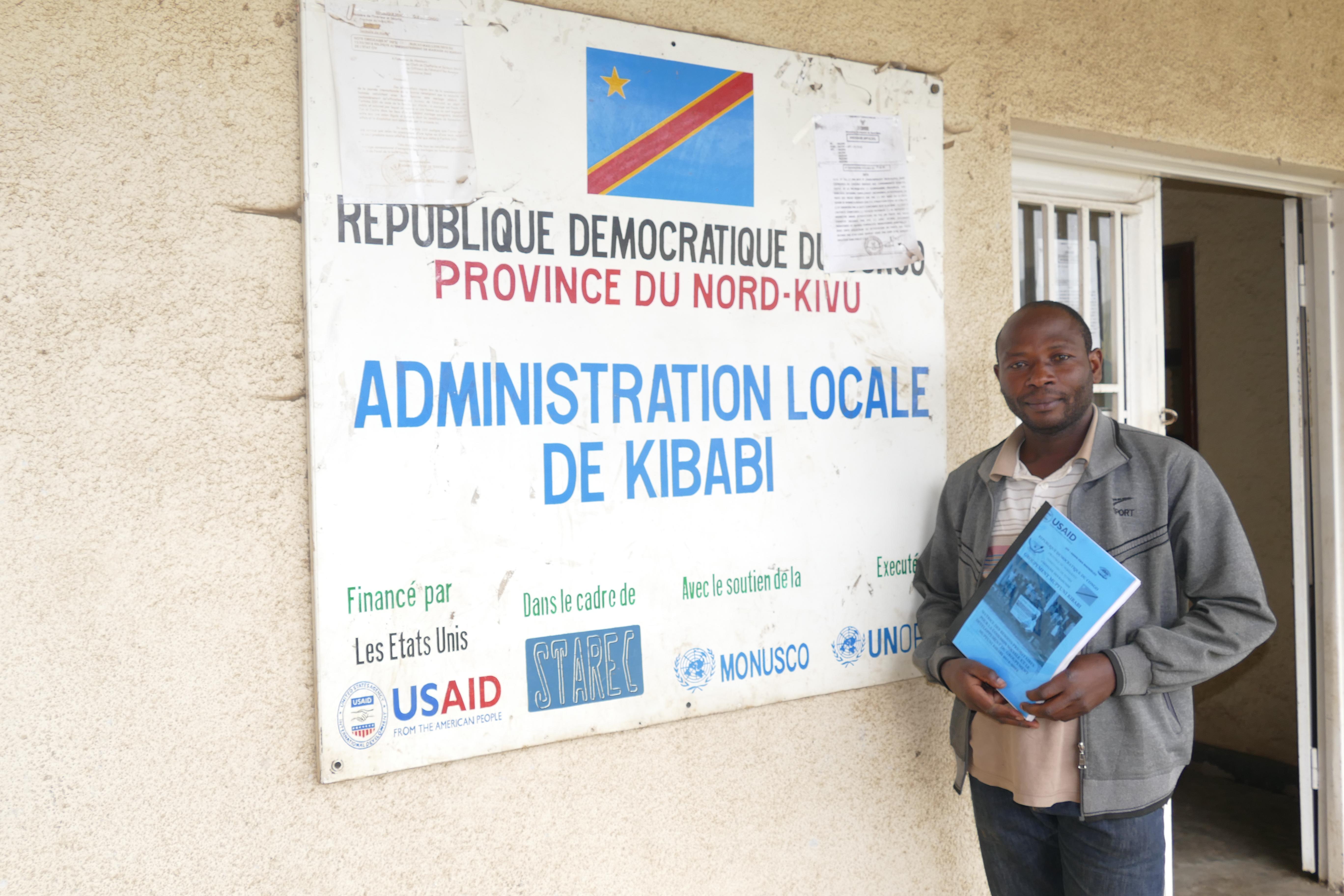- Blog
- / July 17, 2019
Building Peace and Stability in DRC – Q&A with Jean Baptiste Nimubona

Jean Baptiste Nimubona is a development professional with over 18 years of experience leading human rights, peacebuilding and governance initiatives in the Democratic Republic of Congo (DRC) and Burundi. His areas of expertise include peacebuilding and social cohesion, youth and women’s empowerment, health, and countering violent extremism. From January 2017 to August 2018, he served as Deputy Chief of Party with International Alert (IA) for the USAID’s Solutions for Peace and Recovery (SPR) project, a project implemented by MSI in Eastern Congo. In August 2018, he became SPR’s Chief of Party.
Prior to his tenure with IA and MSI, Jean Baptiste worked with Right to Play and CARE International respectively as Country Manager and National Programs Director in Burundi. He holds a Master’s and Bachelor’s Degree in Economics & Management from Ntare Rugamba University (Burundi), and speaks fluent English and French.
What are some of the most important challenges facing eastern DRC?
In the Democratic Republic of Congo (DRC), poor governance, lack of economic opportunities and fragility of institutions have led to security deterioration, corruption, lack of basic service delivery, and poor infrastructure. These problems exist in eastern DRC, as they do in the rest of the country, but additionally the region has suffered from persistent violent conflict driven by multiple historical, political and socioeconomic factors that can be seen in summary as revolving around these key issues:
- identity (ethnicity, tribalism);
- natural resources accessibility/control (i.e. land disputes); and
- power sharing.
There are more than a hundred armed groups in this region, including some originating from neighboring countries—Rwanda, Burundi and Uganda. The United Nations has sent a stabilization force of 17,000 soldiers to the country, with deployment focused on the East, to prevent the powder keg from exploding, but the situation is tenuous. Additionally, civil wars and cycles of violence in Burundi and Rwanda have resulted in refugees fleeing into eastern DRC, so there are humanitarian challenges as well.

What does social cohesion mean in the DRC context and how does SPR support social cohesion?
Social cohesion refers to the capacity of a group/team/community/society to overcome their differences, accept to stay and live together, maintain stability, well-being and good relationships between them for the long-term, independent of their culture, differences and diversity.
In eastern DRC, USAID’s Solutions for Peace and Recovery (SPR) project enhances social cohesion in North and South Kivu provinces by supporting communities to analyze and identify local drivers of conflict, agree upon responses, and allocate resources to these responses. We focus especially on building the capacity of women and marginalized groups to understand local conflict and facilitate their participation and inclusion in governance and decision-making.
This process of identifying challenges and creating responses builds social cohesion by helping citizens, civil society organizations, local government and others to work together in an inclusive way to find solutions that they themselves identify and can carry out. This creates commonalities amongst communities and builds partnerships for change where divisions may have been present. Women, marginalized groups and youth are essential contributors to this community process but their voices have often been left out in the past, so we make a concerted effort to enlist them.
This increased social cohesion enables participating communities and local governance structures to create “virtuous cycles” of working together in the future to resolve and prevent local conflicts, and to better resist divisive external influences of conflict-drivers and mobilizers.
That’s how peace has a chance.
Take Mbinga North in the Kalehe territory in South Kivu for instance – two areas where we work. In South Kivu, there is a lot of tension between majority Havu, and the minority Shi, Hutu, Tutsi, Batmebo, and Pygmie ethnic groups. Violence has erupted between the groups – often involving local armed groups.
The project went into these communities to facilitate participatory processes that sensitized communities and local leaders to better understand their own local conflict dynamics. These processes identify and prioritize community needs or emerging concerns, which can lead to conflict if they are not addressed. With project support, six local peace and development committees were re-established in Mbinga North to work closely with communities and local authorities to develop social cohesion plans.
Now, these ethnic groups no longer engage local armed groups in case of conflict but instead engage their local peace and development committees. The communities themselves, as well as local authorities, have reported a significant reduction in the tensions between ethnic groups.

What is the role of women and marginalized groups in promoting social cohesion?
Inclusion and effective participation of women and marginalized groups (including minority ethnic groups, displaced persons and refugees, youth, combatants, etc.) is key for successful social cohesion in a society where insecurity, patrimonial and predatory governance, cultural norms, and economic and educational disadvantages discourage or limit community members’ participation. Women and other marginalized groups constitute a solid foundation to maintain peace and social cohesion if they are empowered. They play the connecting role through their participation in peace processes, local decision-making bodies and grassroots advocacy towards peace and stability.
The project ensures that women and other marginalized groups are actively engaged in local conflict assessment and research, and receive capacity building in participatory conflict analysis and transformational leadership. At least 40% of beneficiaries, including local peace and development committee members, are women and representatives of other marginalized groups. Livelihood responses to certain community conflicts are also implemented through local women structures such as Village Saving and Loan Associations.
SPR provides grants to local civil society organizations to support social cohesion. Can you speak about some of the challenges of working through partners to provide social cohesion and how do you ensure sustainability?
The project works with 40 local partners through its grants program. Some of these partners, while well placed to reach relevant communities, lack adequate capacity to manage their grants, and to analyze and identify sustainable solutions to their conflicts. To improve their performance and ensure sustainability at the end of the project, we are running financial and technical capacity building activities based upon participatory conflicts analysis and research that have been provided to local grantees. In addition, we connect local grantees to advocacy efforts that aim to mobilize additional resources to implement their sustainability plans. One hundred and eighty local civil society organizations completed these trainings.
How is the project working to advocate for grassroots solutions and priorities at the provincial, regional, and national level?
USAID/DRC advances civil society advocacy efforts in eastern DRC by building local capacity to do conflict analyses, craft strategic responses based on these analysis and then facilitating interaction with leaders at the provincial, national and regional levels to advocate for these responses. The project has recently increased its advocacy work through the establishment of two provincial advocacy networks in North and South Kivu.
Two provincial forums on Peace and Social Cohesion, organized before the presidential elections in the two provinces, successfully brought together community members, women and youth organizations, local authorities, traditional leaders, civil society actors, and government institutions. Representatives of each of these groups discussed, elaborated and signed a letter of commitment towards nonviolent elections and maintaining peace in their respective communities.
Building local capacity for peacebuilding advocacy requires regular and sustained capacity building and accompaniment of local peace actors, civil society organizations and networks. The project intends to continue its capacity building for advocacy and maintain regular support for advocacy networks in eastern DRC.
